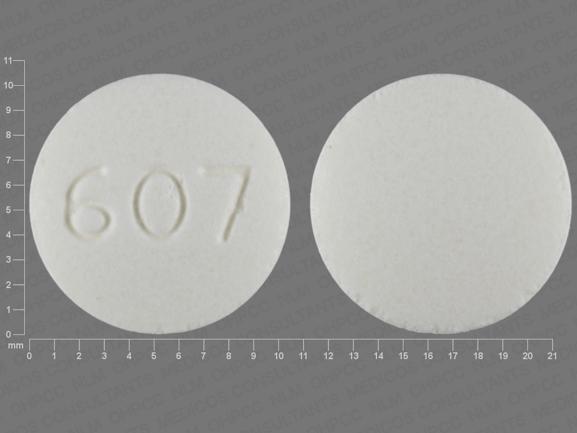Disulfiram Disease Interactions
There are 5 disease interactions with disulfiram.
Disulfiram (applies to disulfiram) alcohol intoxication
Major Potential Hazard, High plausibility. Applicable conditions: Acute Alcohol Intoxication
The administration of disulfiram is contraindicated in patients in a state of alcohol intoxication. The disulfiram- alcohol reaction may produce symptoms including flushing, throbbing in head and neck, throbbing headache, respiratory difficulty, nausea, vomiting, sweating, thirst, chest pain, palpitation, dyspnea, hyperventilation, tachycardia, hypotension, syncope, weakness, vertigo, blurred vision, and confusion. Severe reactions may result in respiratory depression, cardiovascular collapse, arrhythmias, myocardial infarction, acute congestive heart failure, unconsciousness, convulsions, and death.
Disulfiram (applies to disulfiram) cardiac disease
Major Potential Hazard, High plausibility. Applicable conditions: Cardiovascular Disease
The use of disulfiram is contraindicated in patients with cardiac disease. The potential for a disulfiram- alcohol reaction, symptoms of which can include cardiovascular effects such as palpitation, tachycardia, chest pain, hypotension, syncope and, in severe cases, cardiovascular collapse, arrhythmias, myocardial infarction, and acute congestive heart failure, may present a particular danger to these patients.
Disulfiram (applies to disulfiram) disulfiram reaction
Major Potential Hazard, High plausibility. Applicable conditions: Glomerulonephritis, Seizures, Hypothyroidism, Diabetes Mellitus
The disulfiram- alcohol reaction may produce symptoms including flushing, throbbing in head and neck, throbbing headache, respiratory difficulty, nausea, vomiting, sweating, thirst, chest pain, palpitation, dyspnea, hyperventilation, tachycardia, hypotension, syncope, weakness, vertigo, blurred vision, and confusion. Severe reactions may result in respiratory depression, cardiovascular collapse, arrhythmias, myocardial infarction, acute congestive heart failure, unconsciousness, convulsions, and death. Because of the possibility of an accidental disulfiram- alcohol reaction, disulfiram should be used with extreme caution in patients with diabetes mellitus, hypothyroidism, seizure disorders, cerebral damage, chronic and acute nephritis, hepatic cirrhosis or insufficiency.
Disulfiram (applies to disulfiram) psychoses
Major Potential Hazard, High plausibility. Applicable conditions: Psychosis
The use of disulfiram is contraindicated in patients with psychosis. Disulfiram may precipitate psychotic reactions and mood disorders, particularly when given in high dosages or with metronidazole or isoniazid. In some cases, however, the sudden withdrawal of alcohol alone can unmask underlying psychotic disorders.
Disulfiram (applies to disulfiram) hepatotoxicity
Moderate Potential Hazard, Moderate plausibility. Applicable conditions: Liver Disease
Hepatic toxicity, hepatitis, and hepatic failure resulting in transplantation or death have been reported with the use of disulfiram. Hepatic toxicity has occurred in patient with and without prior history of abnormal liver function. Extreme caution and close monitoring is advised if used in patients with liver impairment. Baseline and liver tests are suggested in all patients to detect any hepatic abnormalities. Patients should be advised to immediately notify their health provider if any symptoms of hepatitis occur (weakness, fatigue, anorexia, nausea, vomiting, jaundice, or dark urine).
Switch to professional interaction data
Disulfiram drug interactions
There are 211 drug interactions with disulfiram.
Disulfiram alcohol/food interactions
There are 2 alcohol/food interactions with disulfiram.
More about disulfiram
- disulfiram consumer information
- Check interactions
- Compare alternatives
- Pricing & coupons
- Reviews (143)
- Drug images
- Side effects
- Dosage information
- During pregnancy
- Support group
- Drug class: drugs used in alcohol dependence
- Breastfeeding
- En español
Related treatment guides
Drug Interaction Classification
| Highly clinically significant. Avoid combinations; the risk of the interaction outweighs the benefit. | |
| Moderately clinically significant. Usually avoid combinations; use it only under special circumstances. | |
| Minimally clinically significant. Minimize risk; assess risk and consider an alternative drug, take steps to circumvent the interaction risk and/or institute a monitoring plan. | |
| No interaction information available. |
See also:
Further information
Always consult your healthcare provider to ensure the information displayed on this page applies to your personal circumstances.


